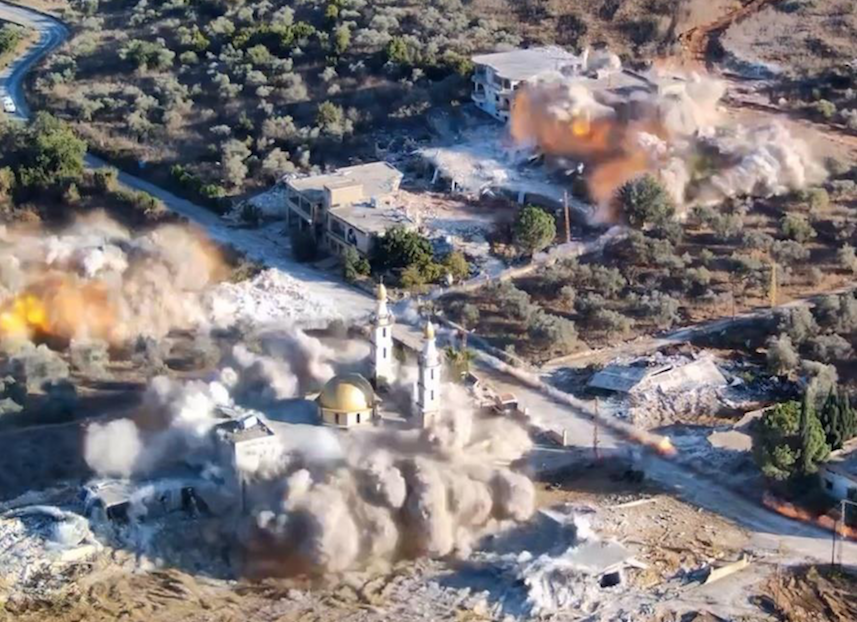
The Israeli military’s extensive destruction of civilian property and agricultural land across southern Lebanon must be investigated as war crimes, Amnesty International said in a new research briefing released on Aug. 25.
The report, entitled “Nowhere to Return: Israel’s Extensive Destruction of Southern Lebanon,” documents the demolition of more than 10,000 civilian structures between October 2024 and January 2025. Amnesty concluded that the destruction, often carried out with manually laid explosives and bulldozers while Israeli forces were in control of the areas, occurred outside active combat and without the “imperative military necessity” required under international humanitarian law.
Researchers verified 77 videos and images published by both Israeli soldiers and Lebanese activists, alongside satellite analysis showing villages systematically razed. The destruction included homes, mosques, cemeteries, orchards, roads, and parks. Amnesty found instances where soldiers filmed themselves celebrating demolitions.
Amnesty emphasized that, under international humanitarian law, destruction of adversary property outside combat is prohibited unless justified by imperative military necessity. Broad strategic objectives, such as creating a buffer zone or preventing future attacks, do not meet this standard. “Any such destruction should be investigated as a war crime where it was carried out intentionally or recklessly” under criteria defined by the Rome Statute of the International Criminal Court (ICC), said Amnesty.
The organization urged Israel to provide reparations, Lebanon to pursue international accountability avenues, and states, particularly the US, to suspend arms transfers to Israel, given the significant risk of further violations.
The UN Office of the High Commissioner for Human Rights (OHCHR) has also criticized Israel’s actions. UN experts reported in February that at least 57 civilians were killed while attempting to return to their homes since a ceasefire was instated in late 2024, and called on Israel to “stop killing civilians returning to their homes in South Lebanon.”
Amnesty International said it submitted questions to Israeli authorities on June 27, but had received no response by the time of publication of the report. Erika Guevara Rosas, Amnesty’s senior director for research, urged:
The Israeli authorities must provide prompt, full and adequate reparations to all victims of violations of international humanitarian law and war crimes, both individuals and entire communities. These reparations must extend to the families of those harmed by Israel’s unlawful conduct.
From JURIST, Aug. 26. Used with permission.
Photo via Amnesty International





Israeli strikes on Lebanon continue
UN Human Rights Chief Volker Türk said 103 civilians have been killed in Lebanon since a last November’s “ceasefire.” Israel has continued to bomb targets in Lebanon on a regular basis, including a drone strike this week that killed two people who the Lebanese government said worked for a construction company with ties to Hezbollah. (TNH)